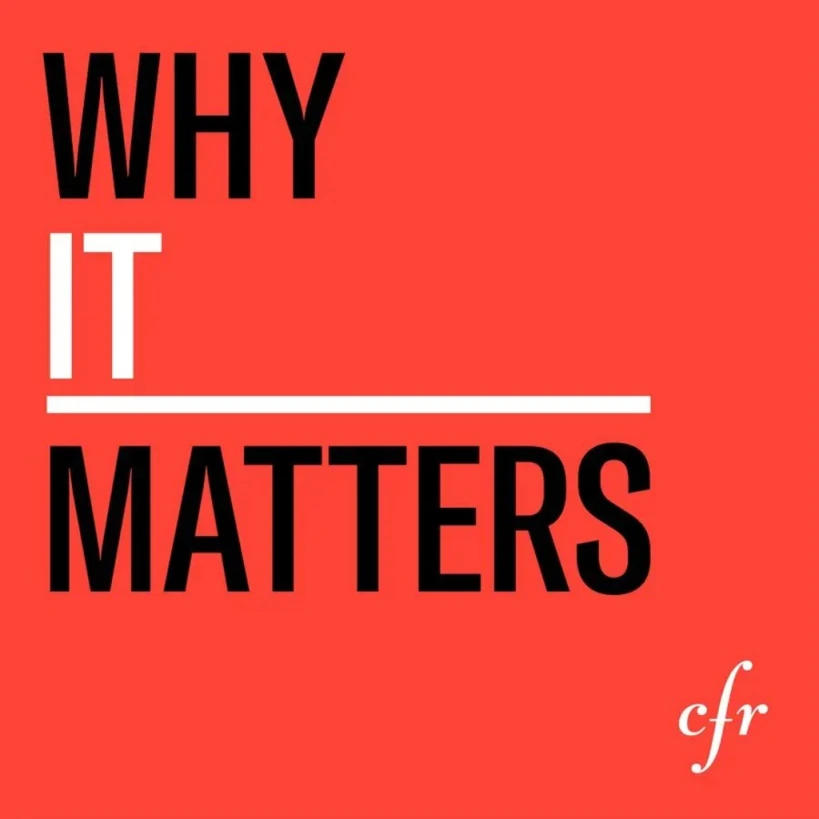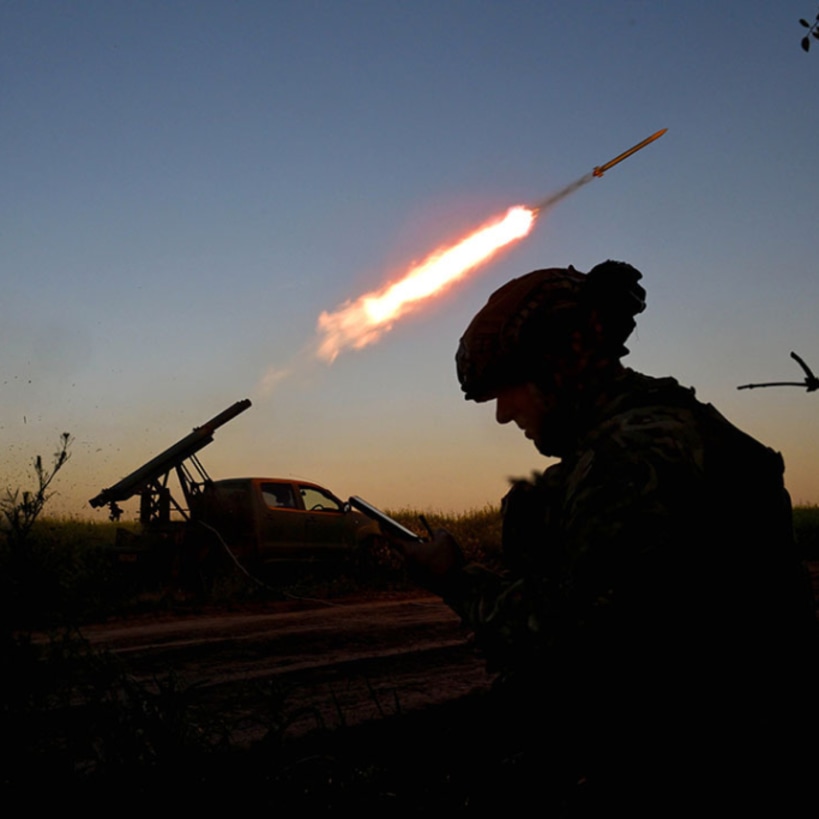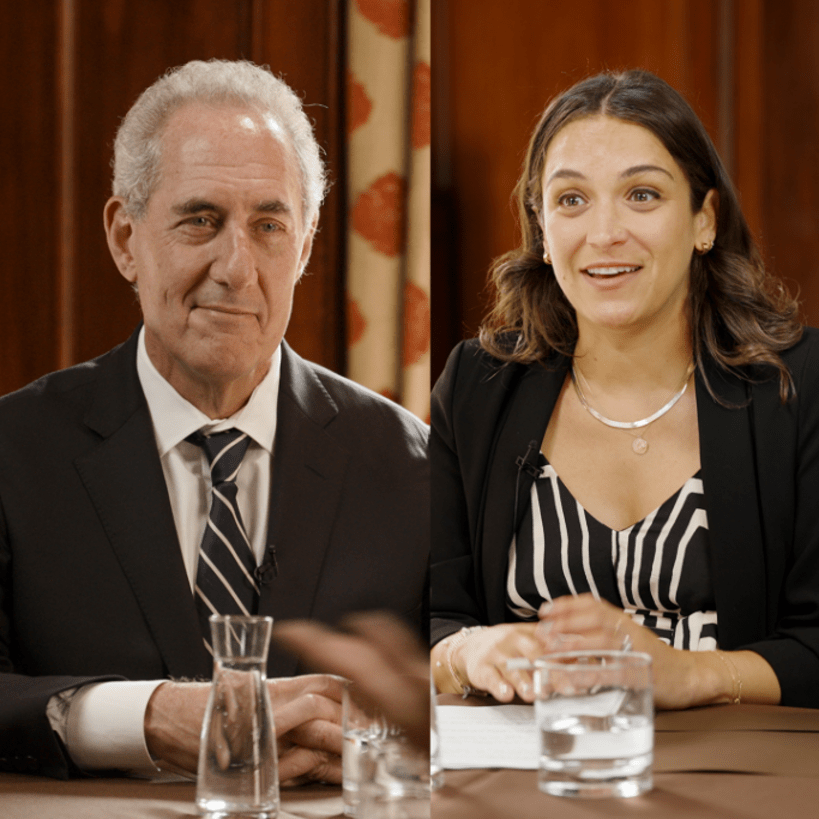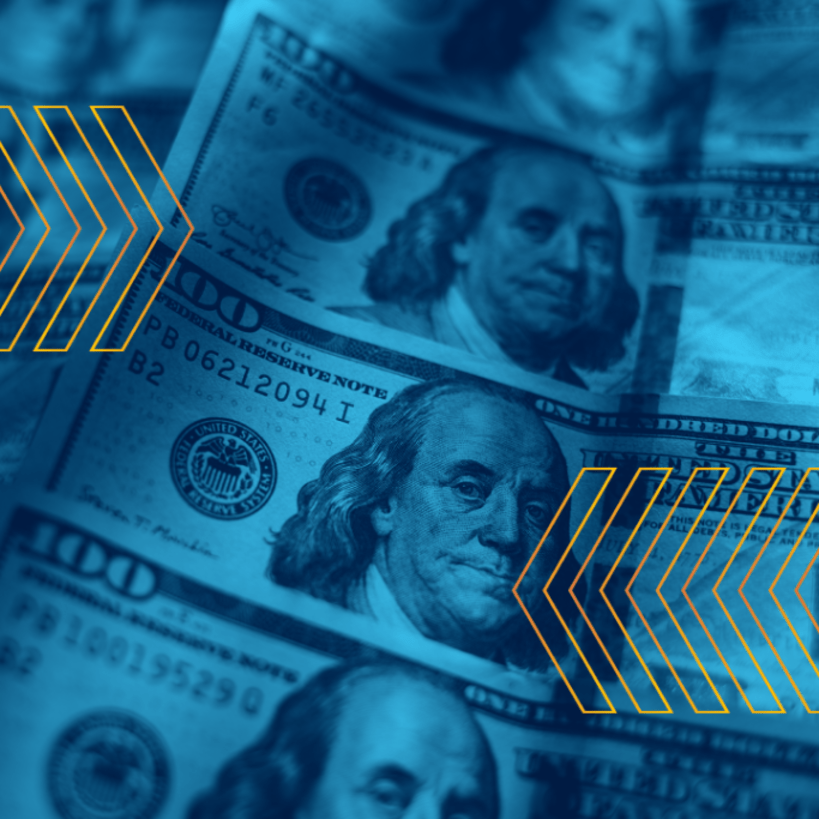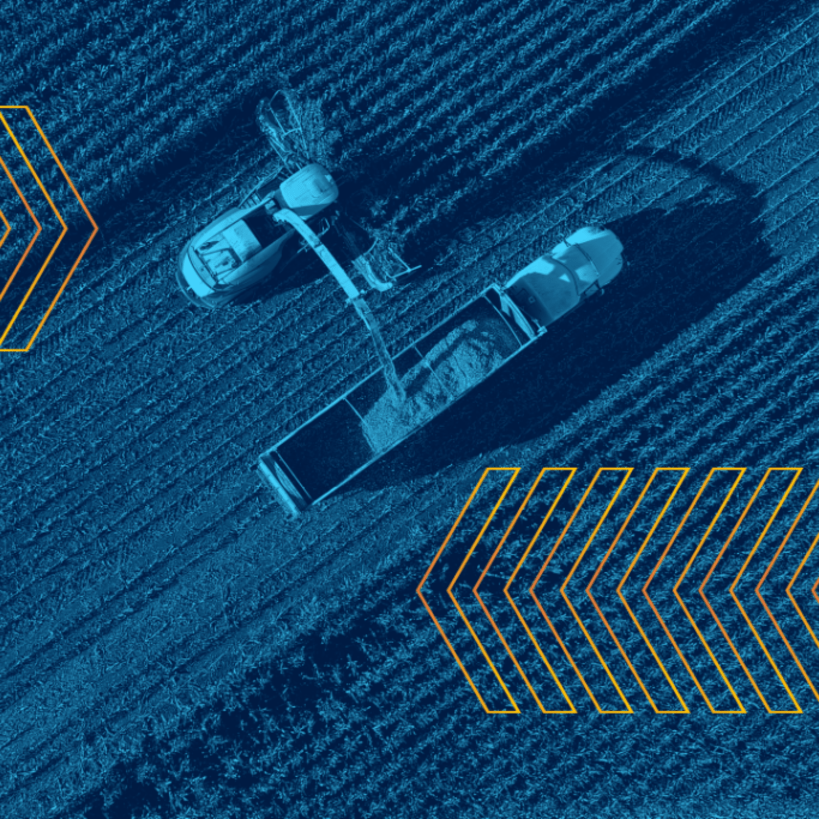The Power of the Pope
For the past two thousand years, the pope has been a major player in global affairs. He is frequently called upon to act as a peace broker, a mediator, an advocate, and an influencer; and with over 1.3 billion followers around the world, the pope and his governmental arm, the Holy See, have the power to shape the future. How has the pope’s power changed over time, and what is his role today?
Published
Host
- Gabrielle SierraDirector, Podcasting
Author
- Timothy ByrnesThird Century Chair in Philosophy, Politics, and Economics and Professor of Political Science, Colgate University
- Francis CampbellVice Chancellor, University of Notre Dame Australia
Supervising Producer
- Asher RossLead Content Strategist
Audio Producer and Sound Designer
- Markus ZakariaAudio Producer & Sound Designer
Associate Podcast Producer
- Rafaela Siewert
Show Notes
Presidents and prime ministers are often the first to come to mind when thinking about who shapes foreign policy. But there is another resonating voice at the center of international relations: the pope. Unlike other religious leaders, the head of the Roman Catholic Church exercises a unique influence over global affairs, and in recent years, popes have helped shape the outcomes of critical inflection points in history. In this episode, Why It Matters examines the pope’s enduring influence.
From CFR
Elliott Abrams, “The Pope’s Cuba Test,” Pressure Points and Middle East Program
Kenneth Himes and Robert McMahon, “The Pope’s Soft-Power Push”
Steven A. Cook, “The Hard Edge of the Pope’s Moral Power”
Victor Gaetan, “The Pontiff, the President, and the Planet,” Foreign Affairs
Victor Gaetan, “The Penitent Pope,” Foreign Affairs
Victor Gaetan, “Why Trump and Francis Diverge on Saudi Arabia,” Foreign Affairs
From Our Guests
“The Enduring Power of the Papacy: Pope Francis and International Relations,” Berkley Center for Religion, Peace, and World Affairs
Read More
Christopher White, “Behind the frontlines of the Vatican’s Ukraine-Russia strategy,” National Catholic Reporter
Nicole Winfield, “Pope’s Ukraine diplomacy a political and spiritual tightrope,” Associated Press
Paul Elie, “The Pope, the Patriarchs, and the Battle to Save Ukraine,” New Yorker
Sylvia Poggioli, “How Pope Francis Became A Foreign Policy Player,” NPR
Wang Linbin, “China-Vatican Relations in the Xi Era,” The Diplomat
Watch and Listen
“Diplomacy and Globalization in the Twenty-First Century,” Center for Political and Economic Thought, Saint Vincent College
“Is the pope head of the world’s most powerful government?,” The Economist
“The Vatican’s diplomatic tightrope in Ukraine,” Inside the Vatican
Transcript
You know you’ve made it to the highest level of prestige when you get to meet the Pope. Actors, artists, athletes and politicians - they all clamor for a handshake with his holiness.
But aside from his starpower, the Pope also has a lot of actual power. He runs a massive organization that serves over 1.3 billion Catholics worldwide, nearly a fifth of the global population.
On any given issue, you may find the church’s position agreeable or egregious. What you may not realize though is that for some 2,000 years the Pope has been at the center of global affairs. He has a seat at the table alongside heads of state, and is sought after for his distinct form of influence and diplomacy.
I’m Gabrielle Sierra, and this is Why it Matters. Today, The Pope’s one-of-a-kind role in international relations.
Reagan Library: If men and women hope to transform society, they must begin by changing their own hearts first.
American Rhetoric Online Speech Bank: As a nation faces increasingly complex political and ethical issues of our time, I am confident that the American people will find their religious beliefs as a precious source of insight, to live a more human and free society.
CBS New York: Peace is not simply the absence of war, but the work of justice.
Gabrielle SIERRA: Let’s dive right into it. When you look at lists of the most powerful people in the world that come out every year, you often find the Pope in, you know, top 10. And he’s next to people like Joe Biden or Vladimir Putin or, you know, probably a Kardashian. And, it occurs to me that I don’t really understand why the Pope is powerful. So is the Pope powerful, and what kind of power does he wield?
Timothy BYRNES: The question of whether he’s powerful is a difficult question. I think he is. I think there are three reasons. First is, as we know, he leads this huge global institution of the Catholic Church. There’s over a billion Catholics. He has ready access to them through encyclicals, through sermons that priests and bishops give. So because of that and because I think he’s sort of prominently dressed and presented as a religious figure in a world that takes that seriously, he’s surrounded by a media circus of incredible intensity and attention.
This is Timothy Byrnes. He is a professor of political science at Colgate University, he’s also the author of four books about the Catholic church’s role in politics and global affairs.
BYRNES: And, since the middle of the 20th century, popes have used modern forms of communication and travel to take advantage of this. So he’s on Twitter, for example, Pontifex, millions of followers. He travels all over the world. So he’s this major sort of religious figure leading the largest single religious institution in the world. That’s one reason. But he’s also the leader of the Catholic hierarchy throughout the world. And by that, I mean every bishop in the world is appointed by the Pope personally, and he is the leader of each national hierarchy or conference. So when you think about world politics or international relations, whatever country is interacting with another country. There are Catholics in those countries, and they are led by bishops who are appointed by and led by the Pope. He’s involved with all of these national hierarchies all over the world. And then finally, and really kind of oddly, to be honest with you, he’s a formal participant in diplomatic relations. The Pope, the Holy See, at the moment has diplomatic relations with 183 countries, including the United States, for example. So he has access to international relations in a way that no other religious leader could even imagine having. He’s a permanent observer at the United Nations. He’s invited as a formal participant in UN conferences and conventions.
Did you get that, relations with 183 countries, for perspective that’s more than the U.S. and US does a lot of diplomacy. And this gets at the crux of it, the Pope’s role on the world stage is not just symbolic, or religious. He’s involved in negotiations and diplomacy on a daily basis.
SIERRA: Can you tell me a little bit about the structure of the Vatican’s foreign policy arm? Do they have a state department?
BYRNES: They do. There’s a person who’s called the Vatican secretary of state, interestingly enough. There’s two people below him. One runs the kind of internal church matters and the other, the undersecretary for relations with states, he runs, they’re all he, of course, runs relations with states. So yes, it’s a kind of a state department, and they have country desks. They have regional leaders, just like any state department would in a country. And then they have these ambassadors, they’re called nuncios or apostolic delegates, but mostly nuncios. Those are sent to these countries with which the Vatican has diplomatic relations. And then interestingly enough, the countries with whom the Holy See has diplomatic relations, there are ambassadors from those countries in Rome. So like the United States has an ambassador who lives in Rome and who interacts with the Holy See and the Pope pretty much as any other diplomat would. So he has this really unique place in the world. He leads this huge religious institution, which brings with it enormous amounts of, I’m interested you mentioned, Kardashians, a sort of celebrity focus of this global religious figure. He heads the hierarchies in all countries around the world as they interact with politics and international relations. And then he’s a diplomatic legal player in international relations and UN processes.
SIERRA: Is the Pope the only religious leader welcomed into these discussions?
BYRNES: Formally, yes, I mean you don’t have diplomatic relations with Islam or Orthodoxy or Judaism or any other religion. So in formal terms, for sure, he is. But there are other religious leaders, we can think about Islamic leaders in Iran, for example, who are certainly players in international relations largely through their leadership of an individual state, and so those religious leaders do have a certain political role to play. But in terms of transnational global religious leaders, no, I’m waiting for someone to come along who can mention anyone who’s even in the same category.
Before we go any further, there are three phrases we’re using in this episode - the pope, the Holy See, and the Vatican. They refer to different things, but they often get used interchangeably. You can think about it sort of like the President, the Executive Branch, and the White House. One is a person, one is an organization, and one is a place.
The pope is the person in charge, the Holy See is the organization he’s in charge of, and the Vatican, or Vatican City - is the place where that organization is located.
BYRNES: The Vatican is the headquarters of the international Catholic Church in Rome. So it comprises St. Peter’s. It comprises a bunch of other buildings that are used administratively, residentially. Vatican City is about a 100-acre micro-state, which was ceded to the church and the Holy See in the 1920s as part of the Lateran Accord. So Vatican City if anyone’s ever been there as a tourist, that’s when you walk into St. Peter’s Square and you’re no longer in Italy. The Vatican are those buildings that house the international headquarters of the Catholic Church.
SIERRA: So it’s its own country to itself?
BYRNES: It is.
SIERRA: Because I went as a kid, I don’t remember doing a passport thing.
BYRNES: No, there are no passports, but I’m surprised you didn’t do what my kids did, which is they put one foot in Italy and one foot in Vatican City and go back and forth.
SIERRA: I mean that’s pretty cool. And the pope lives there?
BYRNES: Yeah. The Pope is the bishop of Rome, actually. He’s elected by the College of Cardinals to serve as the bishop of Rome and, as bishop of Rome, he also serves as what’s called the Supreme Pontiff of the Catholic Church. So he is, in a sense, the head bishop of all Catholics throughout the world.
SIERRA: And the president or king of the Vatican, in that sense, then?
BYRNES: Well, again, I would say Vatican City, he is the absolute ruler. They don’t use the word, king, or certainly not president. But he is, in fact, legally the absolute ruler of the micro-state of Vatican City.
So the pope has a unique combination of institutional, diplomatic, and soft power. But what does this look like in reality? Well, a lot of it is happening every day behind the scenes. But every once in a while, these interactions make history.
BYRNES: When Julian Assange released WikiLeaks, one of the things that was released that drew my attention, but maybe not yours, was that there were a huge number of documents within the United States State Department which reflected the communications between the US State Department and the Holy See. And they were fascinating. This was under President George W. Bush and Obama, mostly. The US diplomatic leaders acknowledged and recognized that the Holy See was a unique actor in international relations because it wasn’t just a state. So you read cables and documents from State Department leaders in the Obama administration, for example, saying like I would say, there’s nobody else like this. These people are kind of diplomatic representatives of a global institution, and we can work with them on all kinds of issues having to do with Middle Eastern politics, having to do with climate change, having to do with diplomatic relations with Cuba, which is a fascinating story I’d like to tell.
Sierra: I’d love to hear that story.
BYRNES: So as I’m sure you know, the United States broke off diplomatic relations with Cuba after the Castro revolution. The United States imposed an economic embargo on Cuba for decades. And, so the United States and Cuba not only didn’t have diplomatic relations, they almost didn’t talk to each other at all. It was like a basic fact of American electoral college dynamics that you just couldn’t even talk about relations with Cuba. Obama was interested in reaching out to Cuba. This was just something he thought would be a historic step that he could take, but he knew that he couldn’t do it himself. And so what he did was he contacted prominent Catholic bishops in the US who, remember, are not only American citizens, they’re also bishops of the Catholic Church who are in communion with the bishop of Rome, the Pope, and have these kinds of relationships with other bishops around the world. And, so Catholic bishops in the US and Catholic bishops in Cuba began to communicate to each other through diplomatic pouches sent from the Holy See in the Vatican to the US State Department in the United States. So the Vatican or the Holy See served as a kind of a kind of honest broker with full secrecy and discretion between the Cuban government and the United States government as mediated by Cuban bishops and American bishops. And then one day Barack Obama called a press conference and said…
New York Times, President Obama: Good afternoon. Today the United States of America is changing its relationship with the people of Cuba, in the most significant changes in our policy in more than 50 years, we will end an outdated approach that for decades has failed to advance our interests, and instead we will begin to normalize relations between our two countries.
BYRNES: And that was done through the church.
The Vatican had contacts on both sides - in part because there were large catholic communities on both sides. And they used that trust to open a door that had been closed for decades. Now, we should mention that the Trump Administration undid this diplomatic progress with Cuba a few years later, but that’s another story. The church is involved in negotiations all the time. And to understand that better we wanted to speak to someone who has been in the room during these discussions. For that we turn to Francis Campbell, formerly a British Ambassador to the Holy See, he is now the president of the University of Notre Dame in Australia. He was interviewed by Why It Matters producer Asher Ross, who’s making his debut on the show.
SIERRA: Hey Asher!
Asher ROSS: Hey Gaby!
SIERRA: Okay take it away.
ROSS: On the international stage, we’re used to the idea that countries are supposed to act in their own interests, or the interest of their citizens. That’s their essential goal. What is the Vatican’s goal? What drives them?
Francis CAMPBELL: One of the most obvious interests it would pursue in different parts of the world is religious freedom. Very broadly, it’s pursuing human rights. It pursues aspects of disarmament, global disarmament. It pursues aspects very much around the eradication of poverty. Very much around a whole social justice agenda. So it’s there as a not directly wanting to interfere in the internal workings of another state. It would leave that to the local Catholic church, but it operates in unison. So at the U.N. level, you will find them very, very much in favor of efforts towards disarmament, efforts, towards international rapprochement. A constant advocate for peace. So if one recalls the war in Iraq in 2003, Pope John Paul II was really one of the world’s most vocal opponents of the war in Iraq. And that would be a pretty consistent theme. You would’ve seen the papacy intervene at different stages of international crises. For example, Pope John the 23rd around the time of the Cuban missile crisis. So they will lend the office of the papacy as a potential sort of neutral broker if that were ever required.
ROSS: What I’m wondering is that the church must have a separate set of goals that are theological or religious in nature. Their religious duties. And I’m wondering what intersection you see between those religious duties and goals, or missions, and these IR missions that you’re speaking about.
CAMPBELL: Well, that’s where it gets to a really healthy tension for the papacy. And there’s a real tension between what I would describe the diplomat and the prophetic voice. For example, when the Vatican was dealing in the Cold War with the countries of central Eastern Europe, you had a real debate between the prophetic voice of the Vatican that wanted to call this out what was happening with regards to human rights, and religious freedom, and the totalitarian nature of the state. And then the more diplomatic pragmatists that were saying, we need some sort of pragmatic deal in order to allow the church to function in these countries.
By the way, a lot of popes are mentioned in this episode, and it’s understandable if you start to get their names mixed up. But there are two you’ll really want to listen for. The first is the current one, Pope Francis, who was elected in 2013. So far, he’s best known for advocating for refugees and climate action. The other Pope to keep in mind is John Paul II. He led the Church from 1978 until his death in 2005. He served for a very long time, and enjoyed a lot of popularity. Among other things, he was pope during the end of the Cold War and the fall of the USSR.
ROSS: Throughout our research on this show, I keep hearing about John Paul II, the pope’s role in Poland during the Cold War, and the solidarity movement. And I was hoping that you could relate that story to us, and kind of maybe give us your thoughts about what that says about the pope’s influence in global affairs.
CAMPBELL: You know, this was the first time that a pope was elected from Central and Eastern Europe. The first time in four-and-a-half centuries, where there was a non-Italian elected. And all of a sudden in 1978, you have the Archbishop of Kraków elected pope at the age of 58. So he’s young, and he’s coming from the church behind the Iron Curtain. So this is someone that immediately in the Western world is able to give a different critique of communism. They’re able to give a lived critique of communism. And with the rise of solidarity out of Gdańsk, you see during John Paul’s visits to Poland, and the first visit in 1979, and his speech in Victory Square in Warsaw, you see the full convening power of the papacy, and the full voice, speaking to the people in a way that communism could never get hold of that level of attention.
ROSS: What do you mean when you say convening power?
CAMPBELL: Well, you see millions of people coming to see him. And if you look in relation to Central and Eastern Europe, and you look at the role of John Paul II, at that particular point in time, you are seeing someone that is holding up a higher standard and set of values, but has an understanding of how communism is translating to the ordinary Pole. And how it is imposed rather than embraced. So when you see him arriving in 1979, and you see him traveling through Poland. The communist authorities can’t keep him out, but people are naturally wanting to come to listen to him, and it’s not through coercion or compulsion. It’s a voluntary act. Whereas, at that period in time, Poland was living under the imposition of communism. It wasn’t embraced. So the contrast, the immediate direct contrast of the images of millions of people coming to listen to a spiritual leader, talking about integral human development. Talking about values, and the virtues that go with the human spirit. You have a natural voice that is speaking to Poland, in a way that Polish communists could not speak to Poland, and to the ordinary citizenry. And that immediately set up a really different, and difficult dynamic for the Soviet Union, and it’s then allies in the Warsaw pact.
ROSS: So the people coming out into the streets to hear him speak, they knew that this was both, you know, Poland is a Catholic country at this point, under Soviet rule. And these people know, A) this is my spiritual leader. But, B) this guy has been through what I’ve been through. He understands my experiences. That’s a potent mix. I mean what role do people believe that he played in the subsequent end to the Cold War?
CAMPBELL: As regards his role in ending the Cold War, he is certainly one of the key main figures. You know, he would share that with Gorbachev. He would share that with Reagan. He would be one of those three or four people. And if you believe that Poland was the first domino to go. And if you believe then in the domino effect, then there is no way that one couldn’t say that John Paul II was one of the three pivotal figures in the demise of communism in Poland, and indeed the demise of communism across Central and Eastern Europe.
BYRNES: Pope John Paul II, basically articulated in every way available to him that Soviet communist rule of Poland and the rest of Central Europe was illegitimate and not permanent. And of all people, Mikhail Gorbachev once called Pope John Paul II the first citizen of global civil society. And, basically, what he did was he stood up in Rome, and especially in his visits to Poland, Warsaw and Krakow, and waved his arms and said, “We’re Poles. We’re Catholics. We are not communists in some kind of transnational Soviet way, and we need to be readmitted or rejoin a unified Europe that will allow us to live,” what he called, “an authentically Polish and Catholic life.”
John Paul’s long tenure, and his activism, have ensured his place in the history books. Now, we have a new pope. Pope Francis.
CNBC: Pope Francis delivered a stern warning to the leader of the Russian orthodox church. His message, don’t be Vladimir Putin’s alter boy.
WION: The head of the Catholic Church and sovereign of the Vatican City State has said the earth will become uninhabitable if there is no contrary action taken on climate change.
BBC News: The pope came here with a profound message on the treatment of refugees. In essence he said, recognize their humanity.
Pope Francis has a very different style - I mean, heck he tweets! - and he’s speaking out about a different set of challenges, like climate change, and the Russian invasion of Ukraine. He also serves during a time of ongoing reckoning for the church, in which the public is sharply aware of atrocities committed by Catholic priests, such as widespread sexual abuse or crimes against indigenous children in residential schools. Pope Francis has taken new steps in acknowledging and apologizing for these crimes, though many still say the church has not done nearly enough to repair the damage.
SIERRA: Alright so I want to understand more about the current pope, can you tell us what he has prioritized so far, and whether he’s been successful?
BYRNES: Whether he was successful or not remains to be seen, but I think he has certainly made an effort and has been given an enormous amount of attention. He issued an encyclical on climate change called Laudato Si. A lot of people have talked about climate change, but almost no one has talked about it in the terms he talked about it, which was that climate change is the greatest threat to the people around the world who have played the least role in creating it. So we, in the United States and the West and industrialized countries, have created this historic calamity known as climate change. And yet, the people who are going to be most immediately affected by the climate crisis, dramatic weather events, tsunamis, hurricanes, etc., and in some parts of the world actually losing their farming land and maybe even losing their country, there are places in Southeast Asia, which will actually be underwater. And the Pope said in his encyclical that not only is climate change real and a challenge to the church’s stewardship of God’s creation, which is how he talks about it, but it’s also a moral issue because you and I, when we get on planes and cars and heat our houses and have air conditioning, we’re actually doing damage in a kind of unethical way to the most marginalized people on Earth who had no role to play in this crisis.
Laudato Si focused catholic attention on the climate crisis just as the Paris Climate accords were being written. And some believe this changed the conversation within catholic communities.
SIERRA: Is there a flip side to the soft power coin?
BYRNES: Well, it depends on one’s view on issues. Right, so you see this in American Catholicism a lot. And, and when the Pope is saying something that a Catholic agrees with, they’re like, “Oh, that’s my Pope. Isn’t that wonderful? And then the Pope says something they don’t like and they say, ”Well, that’s just the Pope.“
SIERRA: Right.
BYRNES: If someone is going to go out into the public square, whether it’s in the US, South Africa, China, wherever and say, “Well, the Pope not only says that climate change is real and that we have a religious responsibility to protect the stewardship of God’s creation, but we have to do it because it’s a moral imperative for the poor and the marginalized.” You say that, then what do you say about the Pope’s argument that gender ideology is a threat to human dignity and that marriage can only be between one man and one woman or that abortion or the destruction of a fertilized egg is always wrong in every sense, you know the Pope is not a liberal. He’s the Pope.
It’s worth jumping in to note that these interviews were conducted before news broke of the Supreme Court draft opinion on abortion.
SIERRA: I mean speaking of those things, from what I’ve heard about this pope, it seems like he has de-emphasized some of those issues. I mean has that changed the Catholic conversation about LGBTQ issues, or abortion at all?
BYRNES: He hasn’t changed any policies or teachings, but he has certainly tried to change the conversation. He came to the United States some years ago, I forget the year, and he spoke before congress, a joint session of Congress, a very, very rare honor given to anyone, much less than a Catholic Pope. He started to talk about threats to human life and human dignity. I thought, okay, here comes the abortion paragraph. But it wasn’t. It was the capital punishment paragraph. He never mentioned abortion. Now, Pope Francis is strenuously, unambiguously, clearly opposed to liberalized abortion law. But that was interesting that he did that. He also said in a very complicated conversation some years ago having to do with gay priests, “Well, who am I to judge?” Now, many people said, “You’re the Pope. Isn’t that what you do?” And he has spent a lot of time in the ensuing years trying to be clear about what he meant by that. And, I think what he meant was that if you were a Catholic priest, you were celibate. You were not engaged in sexual relations, but you had same sex identity and were a celibate gay man, who am I to judge? It’s not my business. But just saying publicly, who am I to judge, in the context of homosexuality did kind of open up a little bit of space for this conversation to be a little different. But I really don’t want to be seen as overstating that space. The Pope remains strenuously opposed to same sex marriage. And, of course, the church continues throughout the world and certainly in the United States to be a major spokesman against reproductive freedom. So those policies haven’t changed. But I like the way you said, “Did he change the conversation?” A little bit. That’s one of the reasons why some conservatives are so unhappy with him.
SIERRA: Cool. You know not changing policy but, I guess, changing what he thinks is worth focusing on as well.
BYRNES: I mean maybe even less than that.
SIERRA: Yeah. Okay.
BYRNES: His central emphasis is on the church being a church of the poor, for the poor, in order to help the marginalized. And, I think it is certainly true that in that context, he would like a little bit less discussion of what we Americans call culture war. It’s not that he doesn’t hold those positions. He doesn’t want to talk about that, I think it’s fair to say. He wants to talk about refugees, climate, and poverty. And therefore, he’s tried to say, “Let’s talk a little bit less about that and a little bit more about this.”
The Catholic church tends not to change. But, the Pope has enormous power to shape what it focuses on. And that’s why who he is matters. Whether you are catholic or not, the choices he makes could impact your life and the things you care about in the world.
One person who can testify to this is our guest, Ambassador Campbell, who grew up in Northern Ireland during the troubles, a period of prolonged and deadly conflict between Prostestant UK loyalists and Irish Catholics.
CAMPBELL: I remember as a nine-year-old, in 1979. It was the first visit of a pope to Ireland. And the pope couldn’t come to Northern Ireland so we all had to travel across the border as close as we could get. And he went to a place in Drogheda, which had been a scene of one of Cromwell’s massacres. And I remember in 1979, the troubles were at their height, and it had come just a few weeks after very horrific events. In bombings, and including the murder of Lord Mountbatten. Very tense time. And here is this pope who we all know had come from the experience of communism in Central and Eastern Europe. But calling on the men of violence to lay down their arms. And it wasn’t safe language. It was bold, prophetic language. And it also understood the nature of the problem. It wasn’t black and white. He also talked about the need for dignity, and for the state to uphold the dignity of each human being, irrespective of their difference. And I think, for me, I never forgot that, that firstly here was someone that came, that drew attention to this issue, that wasn’t afraid to challenge power. The power of the British government to do the right thing in relation to its administration of Northern Ireland at that time when it wasn’t right. It wasn’t correct, but equally, not to flinch from a message to people inside the Catholic community who had chosen to take up arms. And he would’ve seen that as his primary goal. That’s who I must communicate to. And I must ask you-and I think that for me, I’m not sure that another figure could have delivered that message, at that time, in that way, unless they had come out of, say, an experience like a Pole living under communism. But that was a very powerful, prophetic voice that I think resonated. And certainly sort of would’ve encouraged people to go down the route of peace. And eventually in that case, the peace process. And it risks taking a position that may be criticized in the here and now, but will stand the test of time diplomatically and politically going forward.
Since this is our last episode with our fabulous intern Roshni, we are going to have her read us out today.
Thanks Gabby! For resources used in this episode and more information, visit CFR.org/whyitmatters and take a look at the show notes.
Have a question or some feedback? Just feel like saying hi? Send us an email at [email protected].
Subscribe to the show on Apple Podcasts, Spotify, Stitcher, or wherever you get your audio. And if you are a fan, we’d love it if you could leave us a review. Ideally a good one, the more stars the better. It really does help us get noticed and we really do appreciate it.
Why It Matters is a production of the Council on Foreign Relations. The show is produced by Asher Ross and Gabrielle Sierra. Our sound designer is Markus Zakaria. Rafaela Siewert is our associate podcast producer. And I, Roshni Rangwani, was the intern this semester. And I loved it.
Robert McMahon is our Managing Editor, and Doug Halsey is our Chief Digital Officer. Extra help for this episode was provided by Claire Felter.
Original music is composed by Ceiri Torjussen. Shout out to our former intern Natalia Lopez who pitched us this idea! We’d also like to thank Richard Haass, Jeff Reinke and our co-creator Jeremy Sherlick.
For Why It Matters, this is Roshni Rangwani signing off. See you soon!
